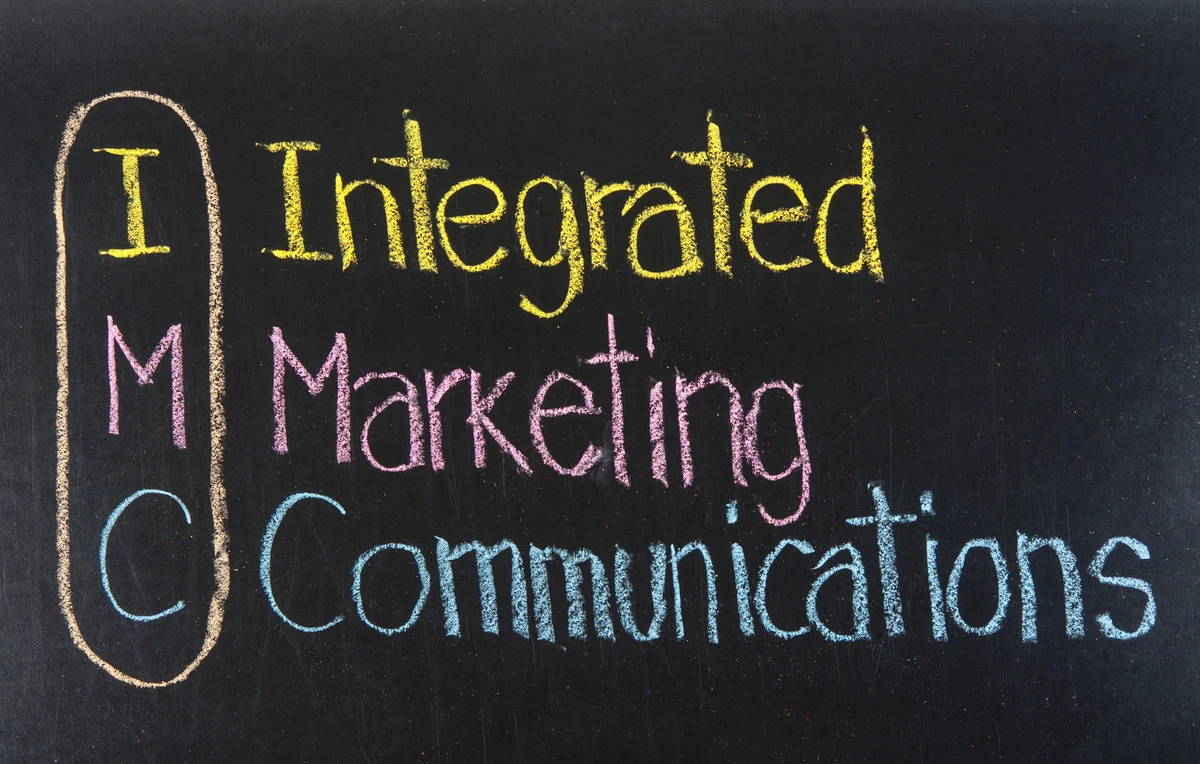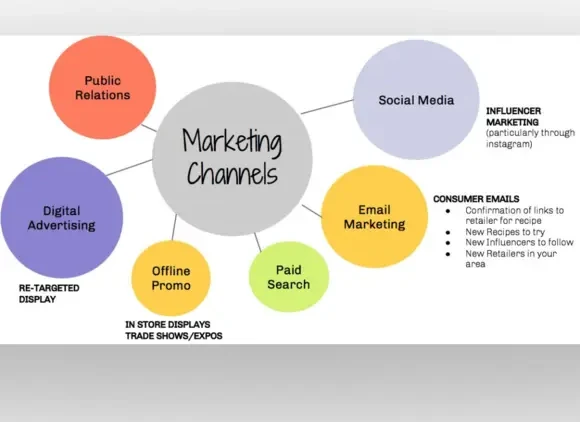
Businesses are continually seeking ways to connect with their target audience more effectively and efficiently. Traditional marketing methods, often fragmented and inconsistent, are no longer sufficient. This is where Integrated Marketing Communication (IMC) comes into play. IMC is a strategic approach that combines various marketing channels and tools to deliver a consistent, clear, and compelling message about a brand or product. By harmonizing different communication methods, businesses can ensure a seamless customer experience, enhance brand loyalty, and drive better results. This blog will explore the concept of IMC, its benefits, strategies for implementation, challenges, and the tools that can aid in its execution.
What is Integrated Marketing Communication?

Integrated Marketing Communication is a holistic approach to marketing that aims to unify all aspects of marketing communication advertising, sales promotion, public relations, direct marketing, and social media into a cohesive force. The primary goal of IMC is to ensure that all messaging and communication strategies are consistent across all channels and are centered around the customer. This involves coordinating and integrating various marketing tactics and activities to provide clarity, consistency, and maximum communication impact.
Benefits of Integrated Marketing
- Consistency in Messaging: IMC ensures that all marketing communications are consistent with each other and with the brand's core message. This consistency helps build a strong brand image and avoids confusion among consumers.
- Improved Brand Loyalty: A unified marketing approach helps in creating a seamless customer experience, which in turn builds trust and loyalty. When customers receive consistent messages, their confidence in the brand increases.
- Cost Efficiency: By integrating marketing efforts, businesses can reduce redundancy and optimize their budget. Shared resources and streamlined processes lead to cost savings.
- Better Measurement of Impact: Integrated marketing campaigns can be more easily tracked and measured for effectiveness. This allows businesses to fine-tune their strategies based on performance data.
- Enhanced Customer Experience: IMC focuses on delivering a cohesive experience across all touchpoints. This not only improves customer satisfaction but also fosters long-term relationships.
Integrated Marketing Strategy
- Understanding the Target Audience: The foundation of any marketing strategy is a deep understanding of the target audience. This includes demographics, psychographics, buying behavior, and preferences. Businesses need to gather and analyze data to create detailed customer profiles.
- Defining Clear Objectives: Establishing clear, measurable objectives is crucial. These could include increasing brand awareness, driving sales, or enhancing customer loyalty. Objectives should align with the overall business goals.
- Crafting a Unified Message: The core message should be clear, compelling, and consistent across all marketing channels. It should resonate with the target audience and reflect the brand's values and identity.
- Selecting the Right Channels: Based on the audience and objectives, businesses need to choose the most effective channels for their message. This could include social media, email marketing, content marketing, paid advertising, and more.
- Creating Integrated Campaigns: Develop campaigns that leverage multiple channels and tactics. For example, a product launch could include social media promotions, email newsletters, blog posts, and targeted ads, all conveying the same message.
- Coordinating Efforts: All departments involved in marketing and communication must work closely together. This ensures that every aspect of the campaign is aligned and supports the overall strategy.
Developing an Integrated Marketing Plan
An integrated marketing plan is a detailed blueprint that outlines how a business will achieve its marketing objectives using IMC principles. Here's a step-by-step guide to developing such a plan.
- Situation Analysis: Conduct a thorough analysis of the current market situation, including a SWOT analysis (Strengths, Weaknesses, Opportunities, Threats). Understand the competitive landscape and identify key market trends.
- Target Audience Segmentation: Segment the target audience based on various criteria such as demographics, behavior, and psychographics. This allows for more personalized and effective communication.
- Marketing Objectives: Set specific, measurable, achievable, relevant, and time-bound (SMART) objectives. These should be aligned with the overall business goals and should address the identified market opportunities and challenges.
- Budget Allocation: Determine the budget for the integrated marketing plan. Allocate resources based on the importance and potential impact of each marketing channel and tactic.
- Message Strategy: Develop a core message that will be the foundation of all marketing communications. Ensure that this message is consistent across all channels and resonates with the target audience.
- Channel Strategy: Identify the most effective channels for reaching the target audience. This could include digital channels (social media, email, SEO), traditional channels (TV, radio, print), or a combination of both.
- Tactical Plan: Outline the specific tactics and activities that will be used to implement the marketing strategy. This could include content creation, social media campaigns, email marketing, public relations efforts, and more.
- Implementation Timeline: Create a detailed timeline for the implementation of the marketing plan. This should include key milestones, deadlines, and responsibilities for each team member.
- Monitoring and Evaluation: Establish metrics and KPIs to measure the effectiveness of the integrated marketing plan. Regularly monitor performance and make adjustments as needed to optimize results.
Implementing Integrated Marketing Tactics
The success of an IMC strategy depends on the effective implementation of various marketing tactics. Here are some key tactics to consider.
- Content Marketing: Create valuable and relevant content that addresses the needs and interests of the target audience. This could include blog posts, videos, infographics, and whitepapers.
- Social Media Marketing: Use social media platforms to engage with the audience, share content, and promote products or services. Ensure that the messaging is consistent across all social media channels.
- Email Marketing: Develop targeted email campaigns that provide personalized content and offers to subscribers. Use segmentation and automation to enhance the effectiveness of email marketing.
- Public Relations: Leverage PR efforts to build positive relationships with the media and the public. This could include press releases, media outreach, and events.
- Advertising: Use paid advertising to reach a broader audience and drive traffic to the website or landing pages. This could include search engine ads, display ads, and social media ads.
- Sales Promotion: Implement sales promotions such as discounts, coupons, and contests to encourage immediate purchases and engagement.
- Direct Marketing: Use direct marketing techniques such as direct mail, telemarketing, and SMS marketing to communicate directly with the target audience.
Challenges of Integrated Marketing and Solutions
While IMC offers numerous benefits, it also presents several challenges. Here are some common challenges and solutions.
- Coordination Across Departments: Ensuring that all departments are on the same page can be challenging. Solution: Foster collaboration through regular meetings, clear communication, and shared goals.
- Consistent Messaging: Maintaining consistency across all channels is crucial but difficult. Solution: Develop a comprehensive style guide that outlines the brand voice, tone, and messaging guidelines.
- Data Integration: Integrating data from various sources can be complex. Solution: Use data management platforms (DMPs) and customer relationship management (CRM) systems to centralize and streamline data.
- Resource Allocation: Allocating resources effectively across different channels can be tricky. Solution: Regularly review and adjust the budget based on performance data and changing market conditions.
- Measuring ROI: Measuring the return on investment (ROI) of integrated marketing efforts can be challenging. Solution: Establish clear KPIs and use advanced analytics tools to track and measure performance.
Tools and Technologies for IMS
Several tools and technologies can aid in the successful implementation of an IMC strategy.
- Marketing Automation Platforms: Tools like HubSpot, Marketo, and Pardot help automate and streamline marketing activities, ensuring consistency and efficiency.
- Customer Relationship Management (CRM) Systems: CRMs like Salesforce and Zoho CRM centralize customer data, enabling better coordination and personalized communication.
- Analytics and Reporting Tools: Google Analytics, SEMrush, and Tableau provide valuable insights into marketing performance, helping businesses make data-driven decisions.
- Content Management Systems (CMS): Platforms like WordPress and Drupal make it easy to create, manage, and distribute content across various channels.
- Social Media Management Tools: Hootsuite, Buffer, and Sprout Social help manage and schedule social media posts, ensuring consistent messaging and engagement.
- Email Marketing Tools: Mailchimp, Constant Contact, and Sendinblue enable businesses to create and automate targeted email campaigns.
Conclusion
Integrated Marketing Communication is not just a trend but a necessity in today's competitive business environment. By aligning all marketing efforts and delivering a consistent message, businesses can create a seamless customer experience, build brand loyalty, and achieve better results. Implementing an effective IMC strategy involves understanding the target audience, setting clear objectives, crafting a unified message, and selecting the right channels. While there are challenges, they can be overcome with proper planning, coordination, and the right tools. Embrace IMC to elevate your marketing efforts and connect with your audience like never before.
If you're ready to take your marketing to the next level, start by developing a comprehensive IMC plan today. Need help? Contact us for expert guidance and support in creating a cohesive and effective marketing strategy that drives results.
What to read next
.webp)
.webp)